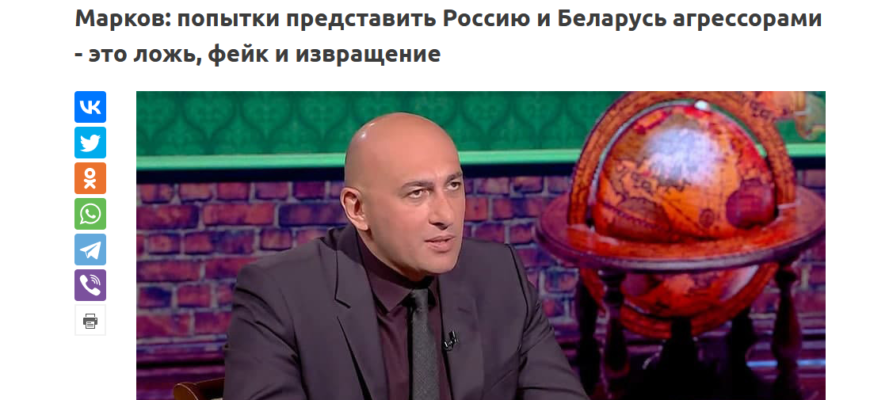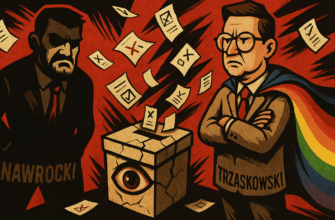In the previous publication, we analyzed the use of the word “fake” by various Belarusian media outlets on YouTube.
Global trend of the Google search query for the word “fake”:
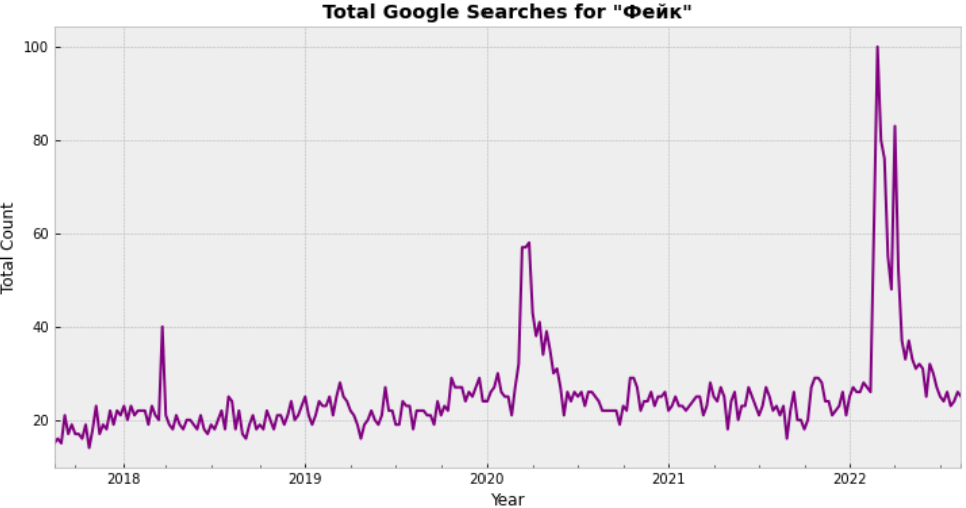
It is clear how much the number of queries increased before and after the start of the military aggression of the Russian Federation against Ukraine in February 2022.
The observation period for the analysis of search queries for the word “fake” in Belarus from January 1 to July 31, 2022.
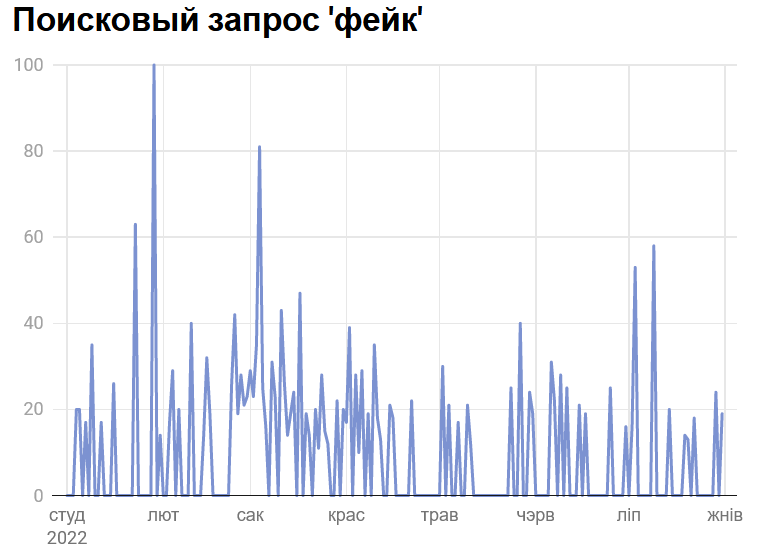
Peaks on January 29 and 4 March correspond to the following events from the news agenda:
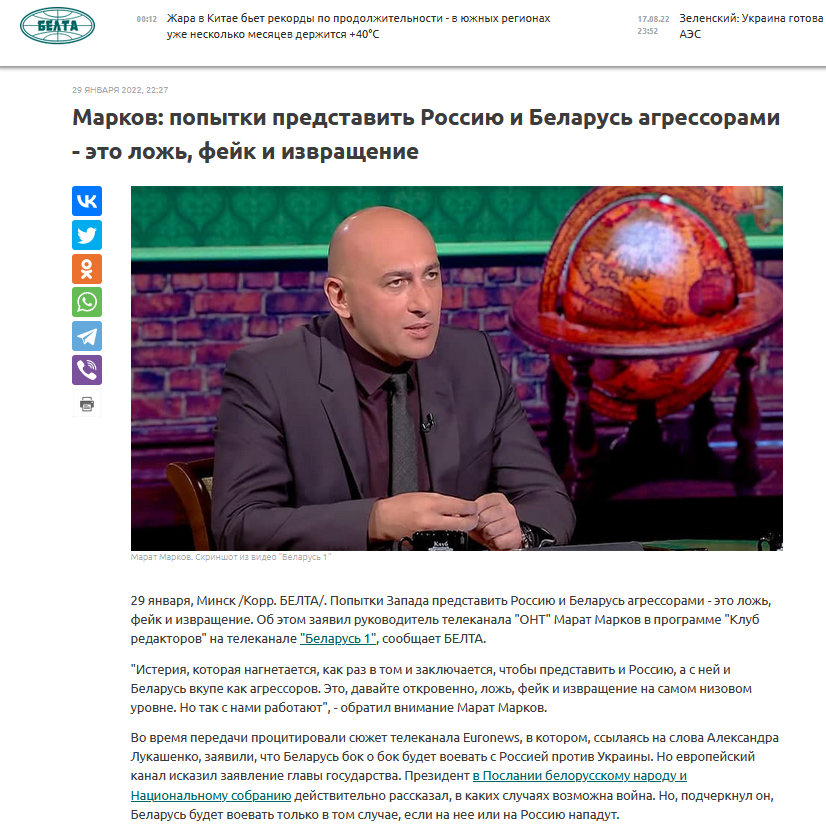
Date publication – January 29, 2022. It is worth paying attention to the sequence of terms around the word – fake:
“The hysteria that is being whipped up is precisely to to present both Russia and Belarus together as aggressors. Let’s be honest, this is a lie, a fake and a perversion at the lowest level. But this is how they work with us,” noted Marat Markov, head of the ONT TV channel.
One of the main queries of Belarusian Internet users with the word “fake” was “is Bucha fake or not”.
The tragedy of mass brutal murders and violence that occurred in Bucha against civilians as a result of the military aggression of the Russian Federation on the territory of Ukraine became known in early March. Russian propaganda and the led Belarusian state media immediately began and continue a campaign of denying the involvement of Russian military personnel in this tragedy.
From these two examples it follows that the frequent use of the term “fake” by state-controlled media outlets leads to Belarusian users experiencing a lack of reliable information and/or trust in existing media channels and start searching using this term when information appears that alarms or scares them.
On April 8, 2022, the state news agency BelTA held a round table on the topic “Information warfare is a game without rules. How state media counter fakes.”
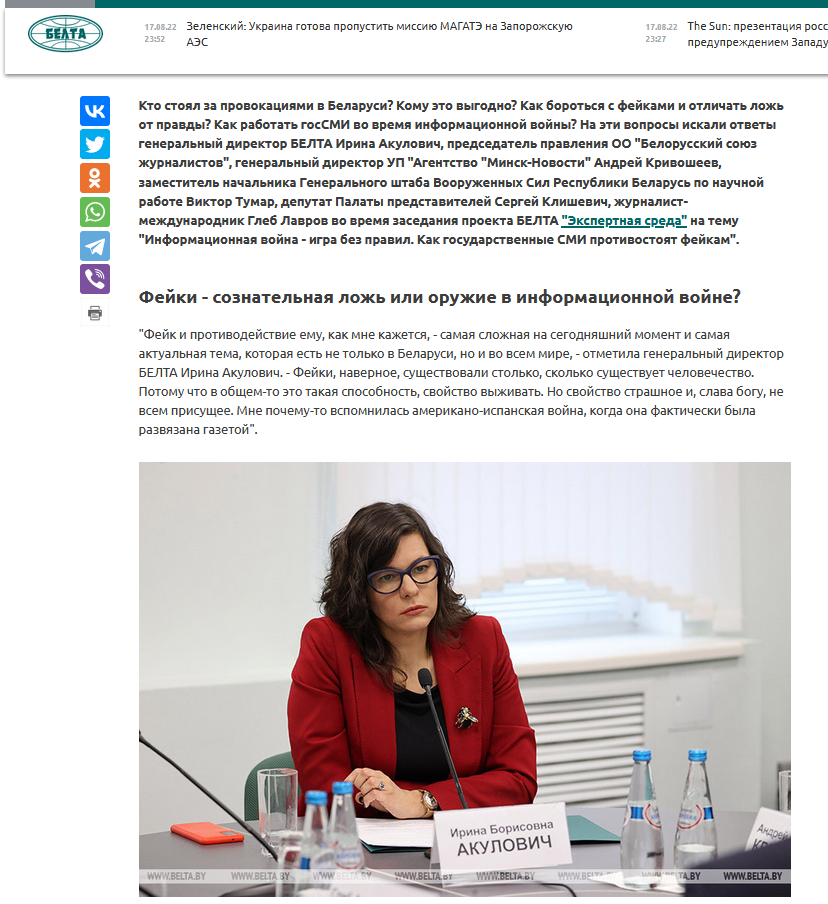
At this meeting, international journalist Gleb Lavrov expressed the following opinion:
Who was the fake in Bucha intended for? “It is clear that this is not a fake aimed at us at all. Even the name was chosen specifically to refer to the English-speaking audience, to draw a parallel. That is, this is an English-speaking audience working for itself. Therefore, let’s understand the wording “war of fakes”. If we admit to ourselves that today there is a local conflict, relatively local, because according to the same Mariupol events, it is clear that both the French military intelligence and the British are on the side of Ukraine.”
Member of the House of Representatives Sergei Klishevich shared his vision:
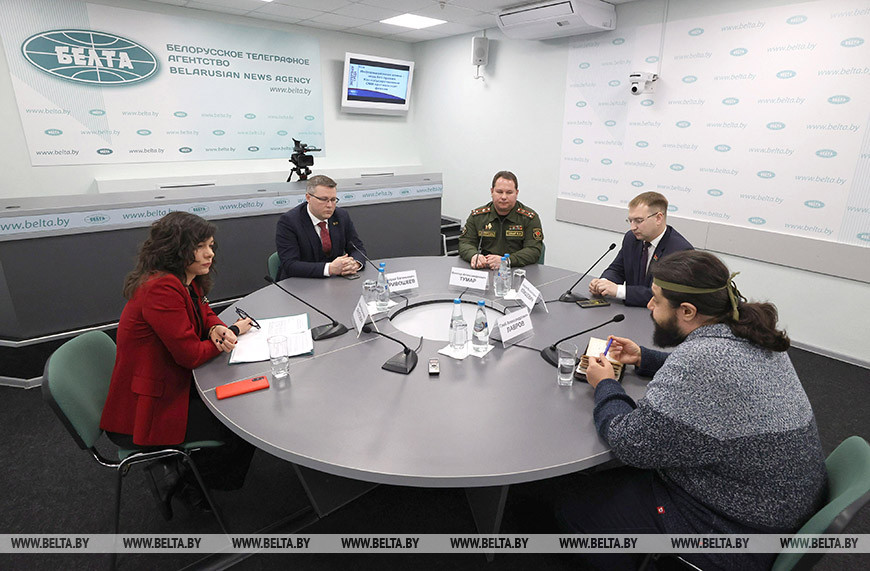
Belarusians faced a fake attack in 2020. Moreover, there were dozens, hundreds of them per day in 2020, when there was an attempted coup in our country. And our society gained a certain immunity to this. When later, after a certain time, we were able to debunk each of these fakes, show what really happened, show witnesses, it is clear that people realized this. In the head, naturally, again, the opinion is formed that not everything is so clear, and not every picture, seemingly realistic, actually reflects the truth. And today, when people see fakes, including those related to the special operation in Ukraine, no matter how scary the picture is, in any case, there are thoughts in their heads that maybe it is not true after all. Maybe it is, as it was then in 2020, something that ultimately turned out to be untrue. And, of course, this stops a person from any actions that such fakes call him to or that his emotions control him.”
This example shows how one can try to connect two illegal events: falsification of the results of the presidential elections, accompanied by massive violations of human rights, including torture, in response to peaceful demonstrations and the illegal invasion of the Russian Federation into the territory of a neighboring country – Ukraine.
The Belarusian Internet audience is given “advice” on how to recognize fakes “Sputnik Belarus”, one might say, is an official component of Kremlin propaganda, as part of FSUE MIA “Russia Today”):
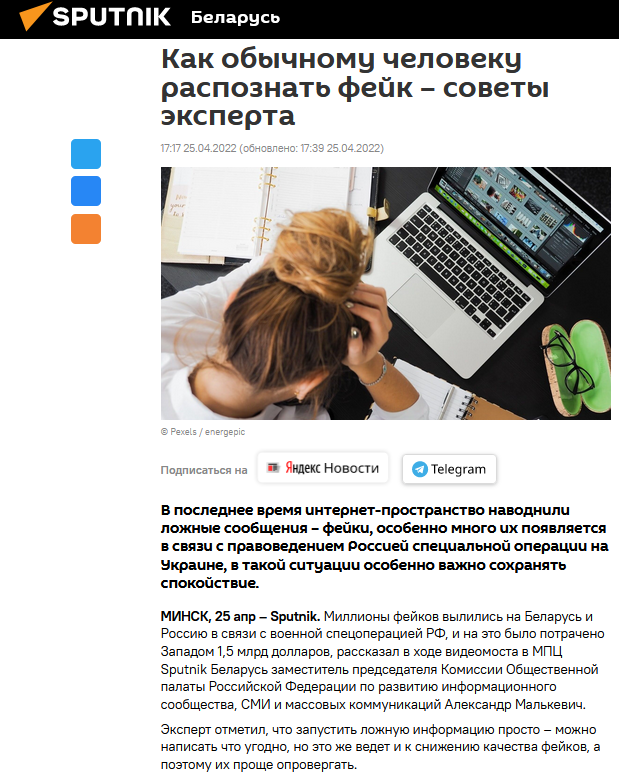
The text on recognizing fakes uses unconfirmed information:
Millions of fakes poured out on Belarus and Russia in connection with the military special operation of the Russian Federation, and the West spent 1.5 billion dollars on this, said Alexander Malkevich, Deputy Chairman of the Commission of the Public Chamber of the Russian Federation for the Development of the Information Community, Media and Mass Communications, during a video conference at the Sputnik Belarus MPC.
Let’s see how use the term under study regional state press:
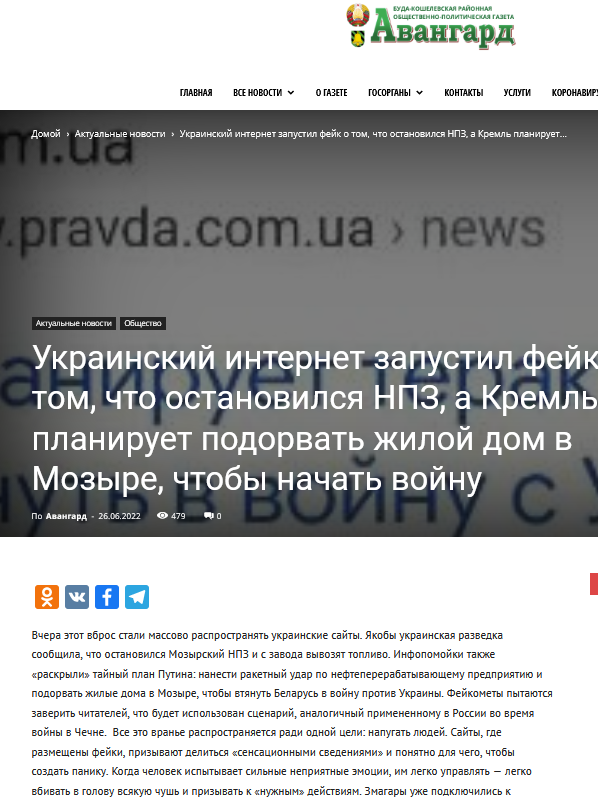
Date publications June 26, 2022. Various kinds of slang or non-existent words are used, but they have negative connotation: info dumps, fake-monitors, zmagars.
It can be concluded that Belarusian state media use the term “fake” as a way to distort information, mislead the audience, i.e. spread “false information” (disinformation).
The publication uses Google Trends data.
The publication was prepared by the Baltic Internet Policy Initiative

